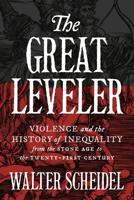Publisher's Synopsis
In 1918 Lytton Strachey published Eminent Victorians, which was a take-down of popular Victorian heroes. In reality, he argued, these paragons of virtue had feet of clay, a dark side that had been conveniently overlooked. The book was an enormous hit, for in speaking to his generation, he was preaching to the converted: even beyond the influential Bloomsbury Circle, of which he was a leading light, there was a widespread revulsion against the hypocrisy, the stilted formalism, and the emotional repression of the Victorian era.
In the following study, Morris Berman aims to do the reverse, i.e., discuss the greatness of a number of those Englishmen and women who lived and worked in the first half of the twentieth century: their dedication, integrity, sincerity, and above all, their sheer brilliance. Much has been made of the galaxy of talent that made up the Italian Renaissance, or the French Enlightenment. Perhaps less has been said about the English galaxy of the post-Victorian era, whose legacy was to contribute significantly to making the modern age even more modern; more daring and experimental, one might say. "There were giants in the earth in those days," is how Berman feels about these folks. It could reasonably be argued that we live today in the world they created. Editorial Reviews:"For those of us who have had the pleasure of becoming familiar with the writings of Morris Berman, we can see a robust theme that runs through much of his work. He challenges his readers to make a distinction between living a scripted life and one that is spontaneous and authentic. In this new book, which is a veritable masterpiece, Berman continues with this theme. In a series of vignettes on early 20th-century British novelists, poets, philosophers, and intellectuals, Berman deftly highlights their work, lives, and personal struggles through a colorful lens. Eminent Post-Victorians: Portraits of Genius is a joy to read and an inspiration for anyone searching for genuine meaning, love, spirituality, or any of the other things that make life tolerable."
- Joel Magnuson, author of The Dharma and the Economy and Financing the Apocalypse, among other works
"Morris Berman never fails to surprise. Having written a thoughtful dirge (the celebrated American Trilogy) on the decline of the American empire, he has now produced a wistful appreciation of the culture of the British Empire in its twilight. Engaging brief portraits of Forster, Woolf, Eliot, Auden, and half a dozen others make ideal introductions, and an idiosyncratic Epilogue strikes a personal but affecting note. Like everything of Berman's, this is not merely worth reading, it is essential reading."
- George Scialabba is the author of five essay collections and How To Be Depressed. His Selected Essays will be published by Verso in 2023.
About the Author:
Morris Berman is a poet, novelist, essayist, social critic, and cultural historian. He has written seventeen books and nearly 200 articles, and has taught at a number of universities in Europe, North and South America, and Mexico. He won the Governor's Writers Award for Washington State in 1990, and was the first recipient of the annual Rollo May Center Grant for Humanistic Studies in 1992. In 2000, The Twilight of American Culture was named a "Notable Book" by the New York Times Book Review, and in 2013 he received the Neil Postman Award for Career Achievement in Public Intellectual Activity from the Media Ecology Association. Dr. Berman lives in Mexico.









